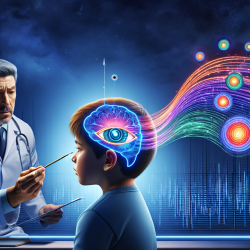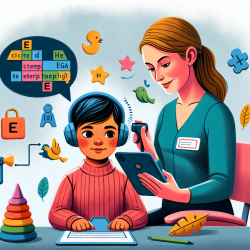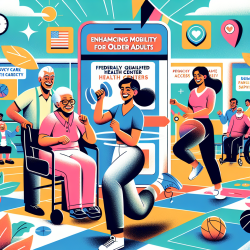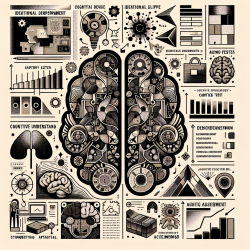Understanding Feedback Processing in Children with Developmental Language Disorder
Feedback processing is a critical component of learning, particularly in children with developmental language disorder (DLD). A recent study published in the Journal of Neurodevelopmental Disorders sheds light on the neural mechanisms involved in feedback-based learning in children with DLD. This study offers valuable insights for practitioners aiming to enhance therapeutic interventions for these children.
The Role of Theta and Delta Activities
The research focused on the electrophysiological aspects of feedback processing, specifically the roles of theta and delta brain wave activities. These activities were examined in a feedback-based probabilistic learning task involving children with DLD and their typically developing (TD) peers. The study found that while children with DLD showed theta activity in response to negative feedback, it did not correlate with their learning outcomes. Conversely, delta activity, which plays a significant role in feedback processing and learning outcomes in TD children, was not evident in children with DLD.
Implications for Practitioners
For practitioners working with children with DLD, these findings highlight the importance of understanding the distinct neural processing differences. Here are some key takeaways:
- Focus on Theta Activity: While theta activity was present in children with DLD, it did not predict learning outcomes. This suggests that interventions should consider strategies that enhance the effectiveness of theta-driven feedback processing.
- Enhance Delta Activity: Since delta activity is linked to reward processing and learning outcomes in TD children, finding ways to stimulate delta activity in children with DLD could be beneficial. This might involve more structured and explicit feedback mechanisms.
- Customize Feedback Strategies: Understanding that children with DLD may process feedback differently, practitioners should tailor feedback strategies to align with these neural differences, potentially incorporating more visual or tangible feedback elements.
Encouraging Further Research
The study opens avenues for further research into how feedback processing can be optimized for children with DLD. Investigating how different types of feedback (e.g., visual, auditory, tactile) influence theta and delta activities could lead to more effective therapeutic strategies.
Conclusion
By understanding the unique neural processing patterns in children with DLD, practitioners can develop more effective intervention strategies. This study underscores the need for data-driven approaches in speech therapy, ensuring that interventions are tailored to the specific needs of each child.
To read the original research paper, please follow this link: The contribution of theta and delta to feedback processing in children with developmental language disorder.










